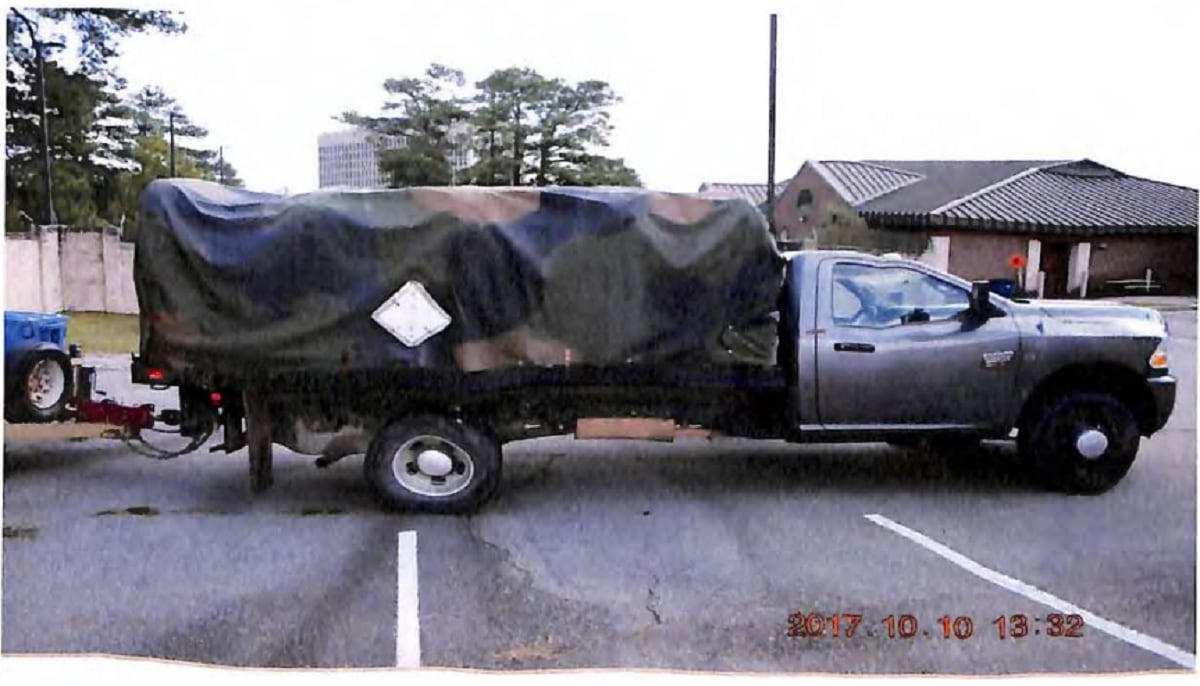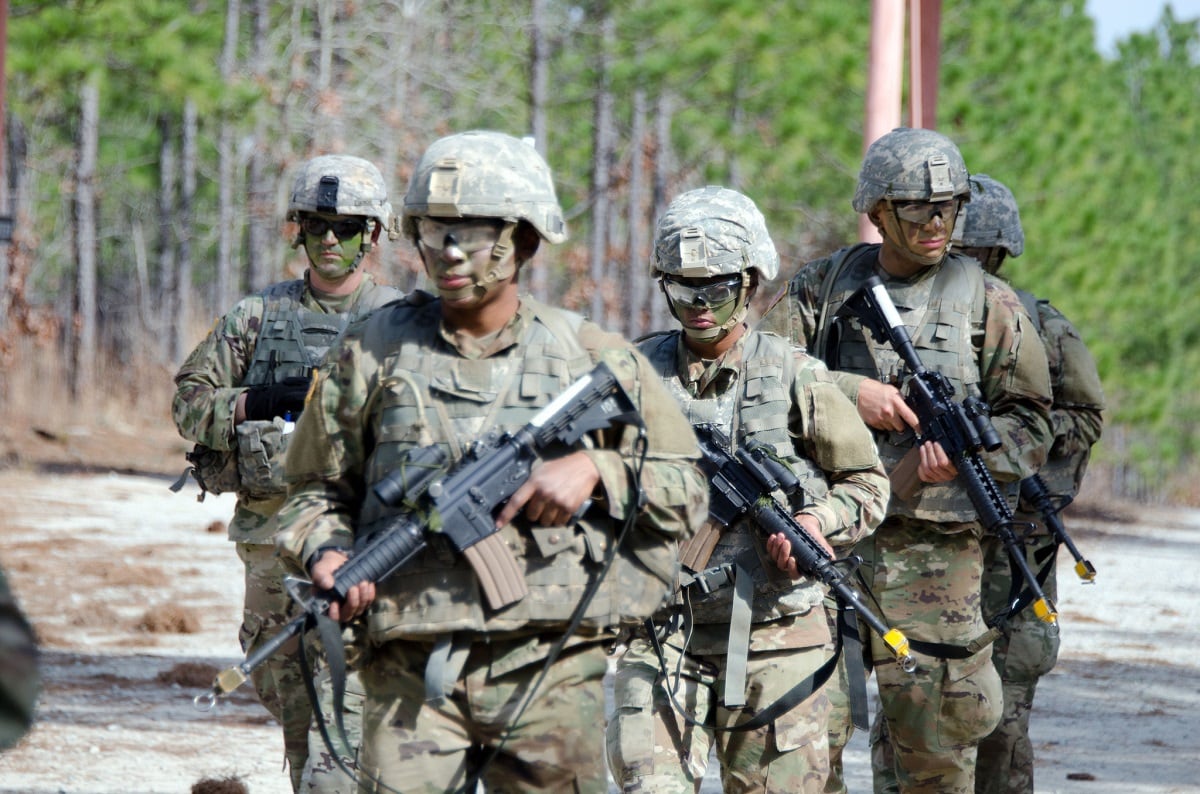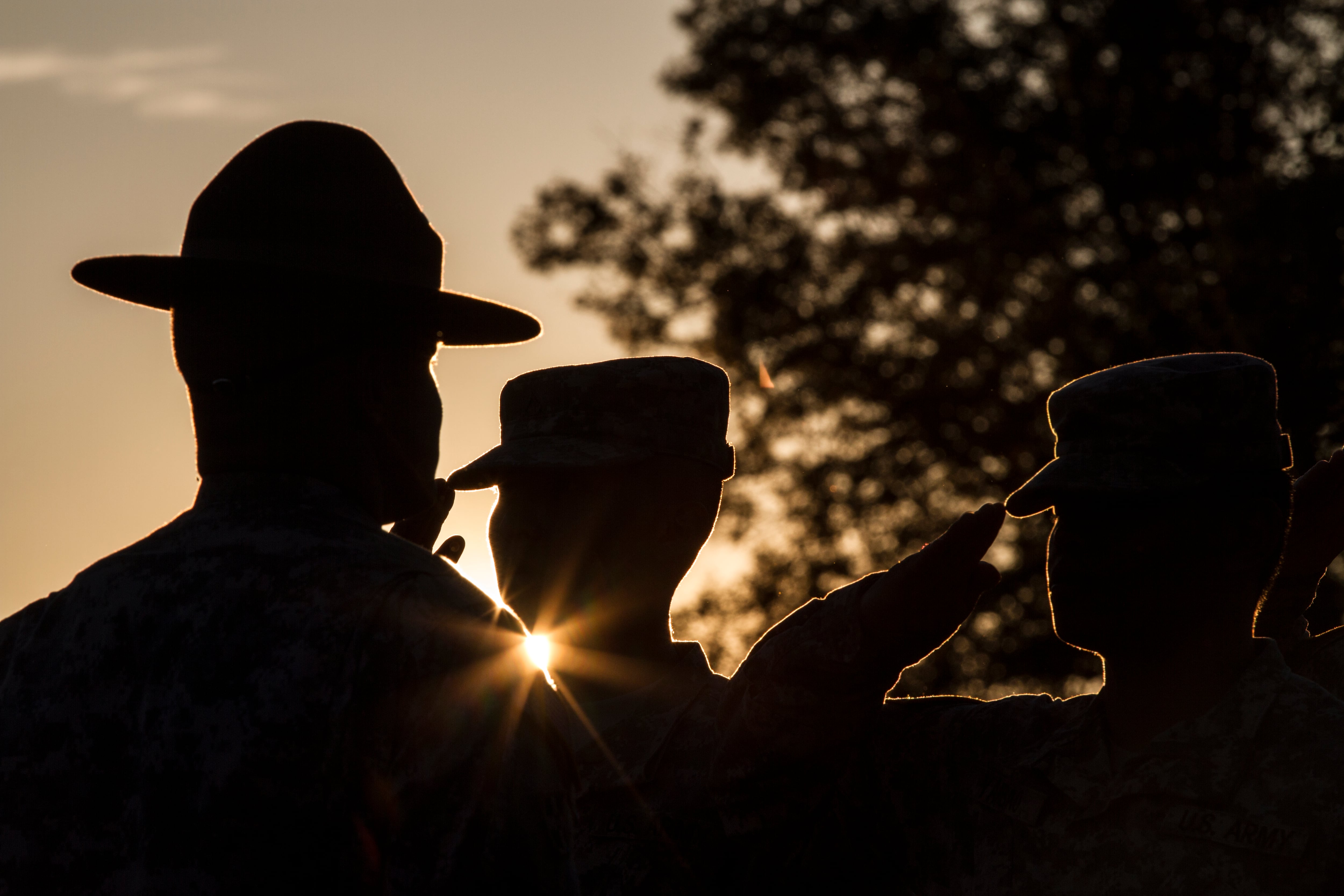A year after a vehicle accident that killed two basic trainees and injured half a dozen others, the Army is considering criminal charges against the drill sergeant who was behind the wheel that day.
The Army has so far declined to identify the drill sergeant or confirm possible criminal charges against him, but a Fort Jackson, South Carolina, safety incident report reveals some details of what happened during that tragic Oct. 6, 2017, road march.
“Pvt. [redacted] realized the truck was driving through the formation, grabbed two other trainees, and pulled them away from the path of the truck,” according to the report, obtained by Army Times through Freedom of Information Act request.
It was approximately 3:30 p.m., and E Company, 2nd Battalion, 13th Infantry Regiment, 193rd Infantry Brigade was mid-foot march, with a one-ton Dodge Ram pickup bringing up the rear, towing a water trailer.
Suddenly, the truck accelerated and swerved to the right, driving into a group of privates, hitting three and pinning two more underneath the water trailer. The drill sergeants told the rest of the trainees to hop off to the side of the road and keep their eyes trained away from the accident.
Drill sergeants couldn’t get pulses on Pvts. Timothy Ashcraft and Ethan Shrader, who were pronounced dead after arriving at a local hospital. Six other trainees were hospitalized with broken bones and cuts, and one was permanently disabled by his injuries.
The drill sergeant who had been driving “looked confused,” according to the report.

What went wrong?
The safety investigation board explored what kind of rest drill sergeants in the brigade were getting, and whether this particular NCO was dealing with personal stress.
The drill sergeant in question was an infantryman on his second batch of trainees. He had already been assigned to Fort Jackson when he requested drill sergeant duty, but he had come to E Company with some baggage, according to the report.
Before coming on, the company commander and first sergeant learned that the drill sergeant had recently been forced to move his family off-post. Details in the report are redacted, but marital issues are mentioned more than once.
His “wife would come to the company and battalion areas and causing [sic] problems,” the first sergeant told the investigator.
The command team recommended marriage counseling, and he took them up on it, according to the report.
“With all the issues DS [redacted] had, that he did not think this is the right time for him to be a drill sergeant,” the first sergeant told the investigator.
Otherwise, the drill sergeant was well liked by his leaders, his fellow cadre and the soldiers themselves. Some privates who gave statements in the SIR said he was much less prone to yelling than some of their other leaders, and he would take time to help them with marksmanship skills.
RELATED

The question of overworking was also key in the investigation. This particular brigade had some progressive policies when it came to taking time to unwind.
"The new brigade commander pushes resting the cadre in the companies,” the company commander told investigators. “Capt. [redacted] stated that they allow the drill sergeants to take a nap if they need to, and he does not ask how long.”
The brigade had also built in some scheduling tweaks to benefit drill sergeants. They were all able to go home after dinner, except for one leader designated the “late man,” and he or she could go home at 9 p.m. And starting in white phase, the second of three in the eight-week basic program, only minimal cadre were required to be around on weekends.
The drill sergeant driving the pickup had worked until 9 p.m. the night before, according to the investigation, and had reported for morning PT with the company just before 5 a.m. the morning of the crash.
A form detailing his involvement in the crash is redacted where it would be noted whether lack of sleep, drugs or other factors contributed to the accident.
The findings and recommendations of the SIR are also redacted. However, Fort Jackson did announce in October that it had briefed the families on the investigation and was moving forward with legal proceedings.
Charges have not been preferred in the case, according to Michael Pond, a Fort Jackson spokesman. The drill sergeant has been serving in a staff position with the U.S. Army Training Center at Fort Jackson.
Meghann Myers is the Pentagon bureau chief at Military Times. She covers operations, policy, personnel, leadership and other issues affecting service members.




